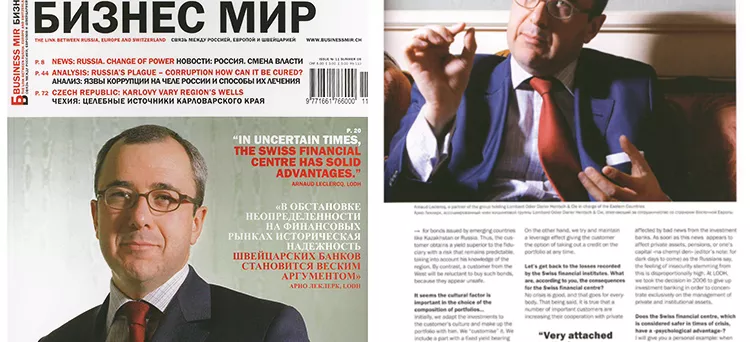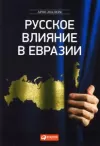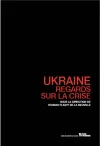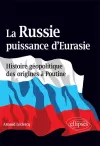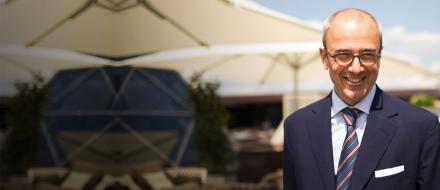In uncertain times, the swiss financial centre has solid advantages
Arnaud Leclercq, a partner of the group holding Lombard Odier Darier Hentsch & Cie in charge of the Eastern Countries, explains the Impact of the financial crisis on Russian portfolios in Switzerland and the consequences of the crisis for the economy. Interview.
Mr. Leclercq, the financial crisis is affecting the whole world, and important Swiss banks find themselves in the middle of this storm. What are the consequences for the assets being managed in Switzerland in general and for Russian customers in particular?
Obviously, it all depends on the composition of the clients' investment portfolios. In my view, Russians have been less affected, relatively, in comparison to other customers with different investment reflexes. Coming from a background that has known, despite the stabilisation observed under Putin, a certain "volatility", the Russian investor shows a strong attachment to his assets. Consequently, Russians have had rather conservative investment behaviours towards their assets managed in Switzerland.
So there is a difference in attitudes between Russian and European customers...
Unlike an Anglo-Saxon client, for example, a Russian client relies less on a reference index. His first priority is not to lose any money. If an Anglo-Saxon, borrowing from this example once again, sees, in a period of crisis, that his investments show a 5% loss in comparison to a 15% loss for the benchmark, he will nevertheless consider this result as quite satisfactory. For the Russian customer, it's a total loss.
In times of rising markets, does he then take the risk of under-performing?
My personal approach is first to conserve the client's assets by assuring a decent "During a crisis, the image of wealth management is directly affected by bad news from the investment banks" absolute performance. The reference index for customers from the CIS is in general the fiduciary investment's rate of return, which corresponds to 2-5% a year depending on the period. One must then realise a higher performance with a vehicle representing very little risk. In addition to sophisticated instruments preserving capital. Russians have a certain appetite for bonds issued by emerging countries like Kazakhstan or Russia. Thus, the customer obtains a yield superior to the fiduciary with a risk that remains predictable, taking into account his knowledge of the region. By contrast, a customer from the West will be reluctant to buy such bonds, because they appear unsafe.
It seems the cultural factor is important in the choice of the composition of portfolios...
Initially, we adapt the investments to the customer's culture and make up the portfolio with him. We "customise" it. We include a part with a fixed yield bearing a risk understood by the customer. In a second step, we introduce structured products with a guaranteed capital. For these products, we choose an underlying which the customer is familiar with, such as oil, gold, international blue chips or important Russian securities such as VTB or Gazprom. for example. Tile investment's third pillar will insure a significant amount of liquidity. Our Russian clients are often very active entrepreneurs who may suddenly need cash in order to make an investment in their country. On the other hand, we try and maintain a leverage effect giving the customer the option of taking out a credit on the portfolio at any time.
Let's get back to the losses recorded by the Swiss financial institutes. What are, according to you, the consequences for the Swiss financial centre?
No crisis is good, and that goes for everybody. That being said, it is true that a number of important customers are increasing their cooperation with private "Very attached to their assets, Russians weren't affected much by the crisis" banks such as ours, as they seem to them to be safer. Over the last ten years, the major banks have developed a global strategy that links private banking with investment banking. During a crisis, the image of wealth management is directly affected by bad news from the investment banks. As soon as this news appears to affect private assets, pensions, or one's capital "na chernyi den" (editor's note: for dark days to come) as the Russians say, the feeling of insecurity stemming from this is disproportionally high. At LODH, we took the decision in 2006 to give up investment banking in order to concentrate exclusively on the management of private and Institutional assets.
Does the Swiss financial centre, which is considered safer in times of crisis, have a "psychological advantage"?
I will give you a personal example: when I became a father, I started to behave differently. Before, I used to look at the performance and speed of a car; now. I am more interested in the safety of the car I buy. In uncertain times on the markets, the advantages of the Swiss financial centre are solid. A year ago, I might not have said that to you, but it is important today. As private bankers, asset management is our only occupation.
Due to our legal structure as "Partners" and to the fact we are not listed on the stock exchange, we have longer term investment perspectives. Our Managing Partners are fully liable with their personal assets. By nature, that implies taking many precautions. Today, private banking is more than just an alternative.
Taking a look at the global economic situation, what are the consequences of the crisis for the Russian economy?
This crisis will strengthen the position of emerging countries such as Russia, India or China and redistribute the weight of the economic powers. I can only bet pleased by such a development. From a macroeconomic point of view, it is abnormal that these countries are not better represented.
Are you implying that Russia is sheltered from this crisis?
Due to the growing interdependence of economies at the international level, the present financial crisis will also affect Russia. However, I observe a stable growth within the country. Western countries will also profit from this situation as they will be able to sell their products in the emerging countries internal markets. The more these countries are stable and prosperous, the better it is for all of us. Russia is a natural partner for Europe through
its politics, its culture and its religion.

